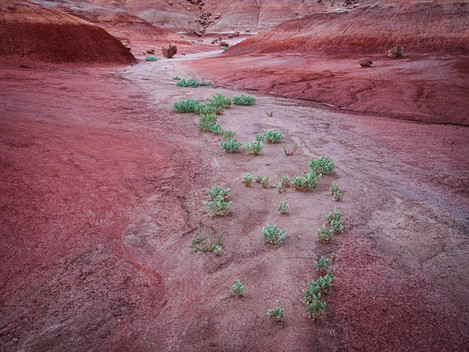Train yourself to find value in the process
I find the keynote to whatever I have done has been unpreparedness. In reality, the only thing in which I have been actually thorough has been in being thoroughly unprepared. ~Alfred Stieglitz
When starting a photography workshop, my co-instructors and I ask participants to introduce themselves and to share with the group what they hope to gain from the workshop. Interestingly, some themes seem to recur more than others. Among these themes is an expressed desire to “learn to be more creative.” This is always music to my ears. I can’t think of many worthier goals for a photographer who has already gained a degree of technical proficiency and experience than to wish to produce more novel, original, and personally-expressive work. More important, that people recognise the value of pursuing such work, is validating. Whether they know it for a fact, or by intuition, being more creative can influence their lives in ways far and beyond just improving their photography. Upon further prodding, some express concern about not being creative (interestingly, often blaming such deficit on monotony in their chosen vocations, which is not entirely unfounded). If you are among those who fear you may not be creative, rest assured that you are. Creativity is a trait of the human brain—it’s not a gift that only some are fortunate to be born with; it’s a built-in feature. However, it is true that not everyone is equally creative, not because of any cognitive deficit but because of lack of practice. Creativity, like most skills, is a trait that can be nurtured and improved with deliberate and repeated engagement.
I will propose here some suggestions for improving creativity, but at the outset, I think it’s important to acknowledge two other built-in traits of the human brain that may get in the way of creativity, and that we often are reluctant to admit having. Resisting and transcending these traits consciously is as important to creative success as training yourself in any other skill that may improve your creativity. These traits, that we all possess, are these: laziness, and the desire to conform. Both traits likely resulted from the evolution of the human brain. Minimising brain activity was a priority when humans had little free time, and sometimes insufficient nutrition, to engage in complex thoughts and flights of imagination (by weight, the brain consumes more energy than any other part of the body). The tendency to conform improves social cohesion, which, in turn, improves a group’s odds of survival by encouraging teamwork, minimising internal conflicts, etc. Today, most of us have no existential reason to be too concerned about taking time to think creatively about our photographs, nor do we have to be too concerned about any existential consequences that may result from breaking with common sensibilities and expectations in our artistic pursuits.



